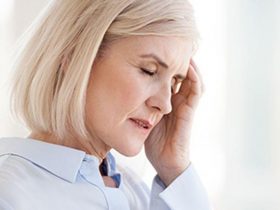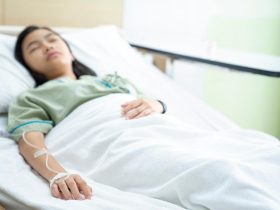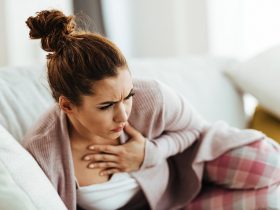Improvement in depression is better for those receiving intermittent theta burst stimulation versus 10 Hz stimulation
By Elana Gotkine HealthDay Reporter
MONDAY, Dec. 4, 2023 (HealthDay News) — For patients with major depressive disorder (MDD), pretreatment pupillary light reflex (PLR) could predict clinical improvement with repetitive transcranial magnetic stimulation (rTMS) treatment, and improvement in depression is better for those receiving intermittent theta burst stimulation (iTBS), according to one study published online Oct. 15 in the Journal of Affective Disorders and a second study published online Oct. 18 in Brain Stimulation.
Cole Citrenbaum, from the Semel Institute for Neuroscience and Human Behavior at the University of California in Los Angeles, and colleagues examined the relationship between pretreatment PLR and rTMS outcome in 51 MDD patients. The outcome measured was percentage change from baseline to treatment in the 30-item Inventory of Depressive Symptomatology Self Rated (IDS-SR) score. The researchers found significant improvement with rTMS treatment. A significant correlation was seen between pupillary constriction amplitude at baseline and clinical improvement over the course of treatment.
In a second study, Citrenbaum and colleagues examined whether the relationship between pretreatment PLR and early symptom improvement differed between participants who received iTBS or 10 Hz stimulation (17 and 35 participants, respectively) to the left dorsolateral prefrontal cortex. The percent change of IDS-SR from session 1 to 10 was the primary outcome. The researchers found that those receiving 10 Hz stimulation had a positive association between normalized maximum constriction velocity (nMCV) and early improvement, while a negative association was seen for those receiving iTBS. For individuals with low nMCV, improvement was 2.6 times greater for those initially treated with iTBS versus 10 Hz stimulation after 10 sessions.
“These results suggest we may be able to use a simple test of the pupil to identify who is most likely to respond to electromagnetic stimulation of the brain to treat their depression,” Citrenbaum said in a statement.
One author from both studies disclosed ties to the medical technology industry.
Abstract/Full Text 1
Abstract/Full Text 2
Copyright © 2023 HealthDay. All rights reserved.







